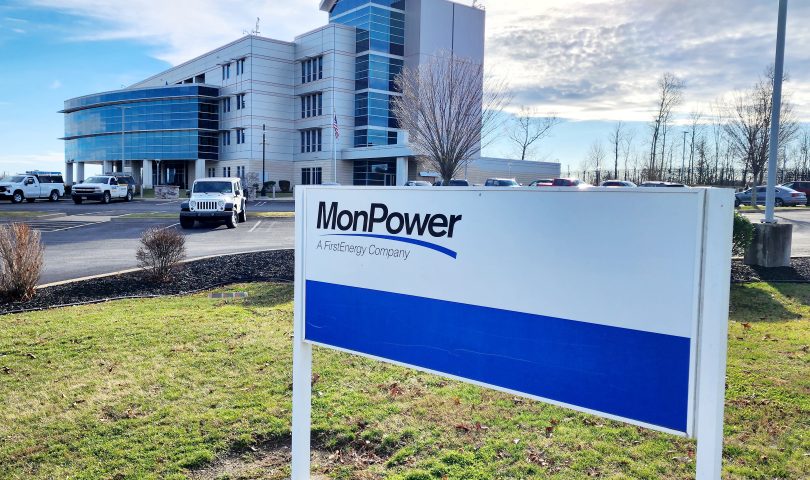MORGANTOWN – FirstEnergy sisters Mon Power and Potomac Edison are seeking a new rate hike to start in 2024.
It’s an ENEC – expended net energy costs – case intended to cover their actual costs of generating electricity. They are seeking $167,465,330, which they project would add $9.19 to the average monthly residential bill, raising it from $120.20 to $129.39 – a 7.8% hike.
The hike, if approved by the Public Service Commission, would take effect Jan. 1, 2024. The say the hike chiefly stems form increasing commodity costs, including coal and purchased power. Power companies file ENEC cases annually.
The math behind the proposed hike is a bit convoluted. To present it as simply as possible, without all the in-betweens, they calculate an under-recovery (recouping less than they spent) of $243,032,313. They propose to split the total $243 million across two years (deferring $75,566,983 to their 2024 ENC case, which would kick in in 2025).
Then they factor in $91,898,347 that was deferred from their 2022 ENEC case, and a projected 2024 over-recovery of $19,913,811, do some subtracting, adding and dividing and come up with this year’s $167.5 million.
New federal emissions regulations, they say, will bump up the ENEC rate a bit more starting March 27, 2024. The new regulations will add another 89 cents per month, bumping the bill from $129.39 to $130.28.
They say they are proposing to spread the under-recovery across two years to minimize customer impact.
Also before the PSC is the companies’ rate hike request: $207.5 million for infrastructure and for their energy assistance program. The hike would cost the average residential customer $18.07 per month – raising a bill from $120.20 to $138.27.
So if the PSC approved both requests, the average monthly residential bill would actually grow from $120.20 to $148.35 (counting the extra 89 cents next March.
Three consumer advocate groups have already petitoned to intervene in the case: West Virginia Citizen Action Group, Solar United Neighbors and Energy Efficient West Virginia.
Of particular interest to the groups is the companies’ previous proposal to modify how net metering customers are credited for the power they generate.
Net-metering customers generate all or a portion of their own power, typically through solar, and receive credits on their bill for that. Currently they receive a full 1-to-1 credit, meaning energy given to the utility is worth the same as energy bought from the utility. Excess energy received from the customer is credited to the customer’s account.
The companies propose to change that to either kilowatt hours (kWh) produced in a given month or excess kWh credited against a future month at the wholesale price level for energy.
As previously reported, the companies say the change is appropriate “so that other customers are not subsidizing net metering customers and so that net metering customers actually pay for the distribution, transmission and capacity facilities that they use and costs that are incurred for them.”
The consumer groups say changing the 1-to-1 credit to a credit based on wholesale price means customers will receive less credit than what they pay for power – about half of what they now receive.
“The companies’ net metering proposal would significantly reduce the credits received by customer-generators, thereby hampering the deployment of distributed solar,” they said in their Friday filing.
The original net metering proposal is included in the rate case for the infrastructure and energy assistance programs, and it has generated, as of Friday afternoon, 297 letters of protest.
They are all short, identical form letters. They said current net-metering rules have an undeniable positive impact. Full credits reduce customers’ energy bills.
And, “The existing net metering rules have fostered remarkable growth in West Virginia’s emerging energy sector. They’ve nurtured innovation, supported local businesses, and generated new blue-collar jobs, boosting the state’s economy.”
Also, they say, “By feeding surplus power back into the grid, net metering reduces strain on the system and enhances grid resilience. This benefits all electricity consumers, making us less susceptible to disruptions by ensuring a diversified energy mix.”
They conclude, “We cannot allow power companies to pull the plug on fair market net metering and interfere with our right to produce our own power. Such a shortsighted decision would have significant consequences, impacting every West Virginian.”
Email: dbeard@dominionpost.com




